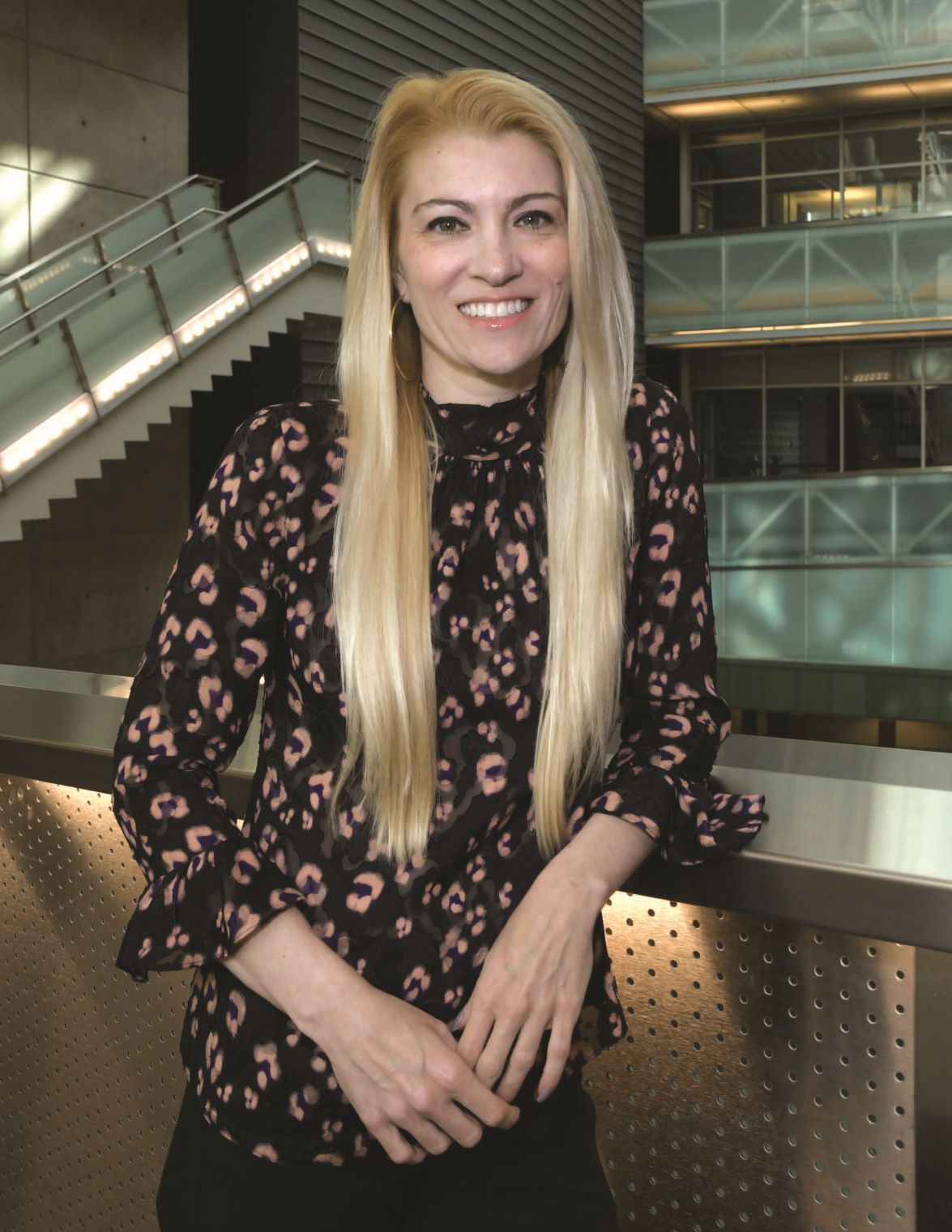TRACKING DOWN CANCER CELLS

Dr. Kendra Carmon looks to fight cancer at the stem cell level.
Targeting shape-shifters seems more like a job for a sci-fi detective than an IMM researcher, but decoding tumor cells that gain more mutations and become increasingly treatment-resistant is the work led by Kendra Carmon, PhD, in the Center for Translational Cancer Research.
Carmon, associate professor, and her lab aim to understand the stem cells found within cancer tumors to assure their demise. “These cancer stem cells can evade therapy much better than other tumor cells, and they also give rise to metastasis and initiate tumor regrowth after treatment,” she explained. “Our idea was originally, if we could target these cancer stem cells, we could then eliminate the whole tumor, and it wouldn’t come back and metastasize.”
Her group created five targeted antibody-drug conjugates to target the cancer stem cells in colorectal cancer. Antibody-drug conjugates use a monoclonal antibody that binds to a specific protein or receptor on the cancer cell and release drug warheads to eliminate the targeted cell without harming normal cells around it. However, eliminating the cancer stem cells wasn’t so straightforward. “We saw that these cancer stem cells have the capacity to shape shift and change their molecular components, so that they can evade therapy,” Carmon said. “They would decrease levels of the receptor we were targeting and actually become more resistant in order to regrow the tumor.”
Armed with this information, she set her sights on other proteins that are expressed during this shapeshifting change. “We’ve been testing different antibody-drug conjugates with different drug payloads to see which ones are most effective,” she said, adding that they are also testing these potential treatments in combination with FDA-approved therapies to determine if there is improved efficacy.
A recent paper published in Cancer Research details the lab’s work on an antibody-drug conjugate targeting epiregulin, which is highly expressed in colorectal cancer. In addition, the lab is working to develop bispecific antibody-drug conjugates – therapies that target at least two different proteins at the tumor surface. “This approach allows us to direct our therapies to overcome the drug resistance caused by tumor heterogeneity and cancer stem cells,” Carmon explained, adding that this approach is in line with newer clinical trials.
Carmon was the first researcher at the IMM to work on antibody-drug conjugates back in 2014 – a therapeutic approach now used by many scientists in the institute. In fact, antibody-drug conjugates are now one of the fastest growing classes of cancer drugs and many have received FDA approvals in past few years.
In addition to focusing on colorectal cancer, Carmon and her group are funded to explore triple negative breast cancer – the hardest breast cancer to treat. Working in partnership with Memorial Hermann-Texas Medical Center, Carmon’s lab receives patient tumor tissue following surgery. This allows them to develop patient-derived xenograft models to explore both the therapeutic and mechanistic side of tumors. The group also uses cancer cell lines and three-dimensional tumor organoids cultures to further their research. “It’s exciting to be able to use our technology to pursue the development of novel therapeutics for a variety of cancers that are difficult to treat,” she said.
